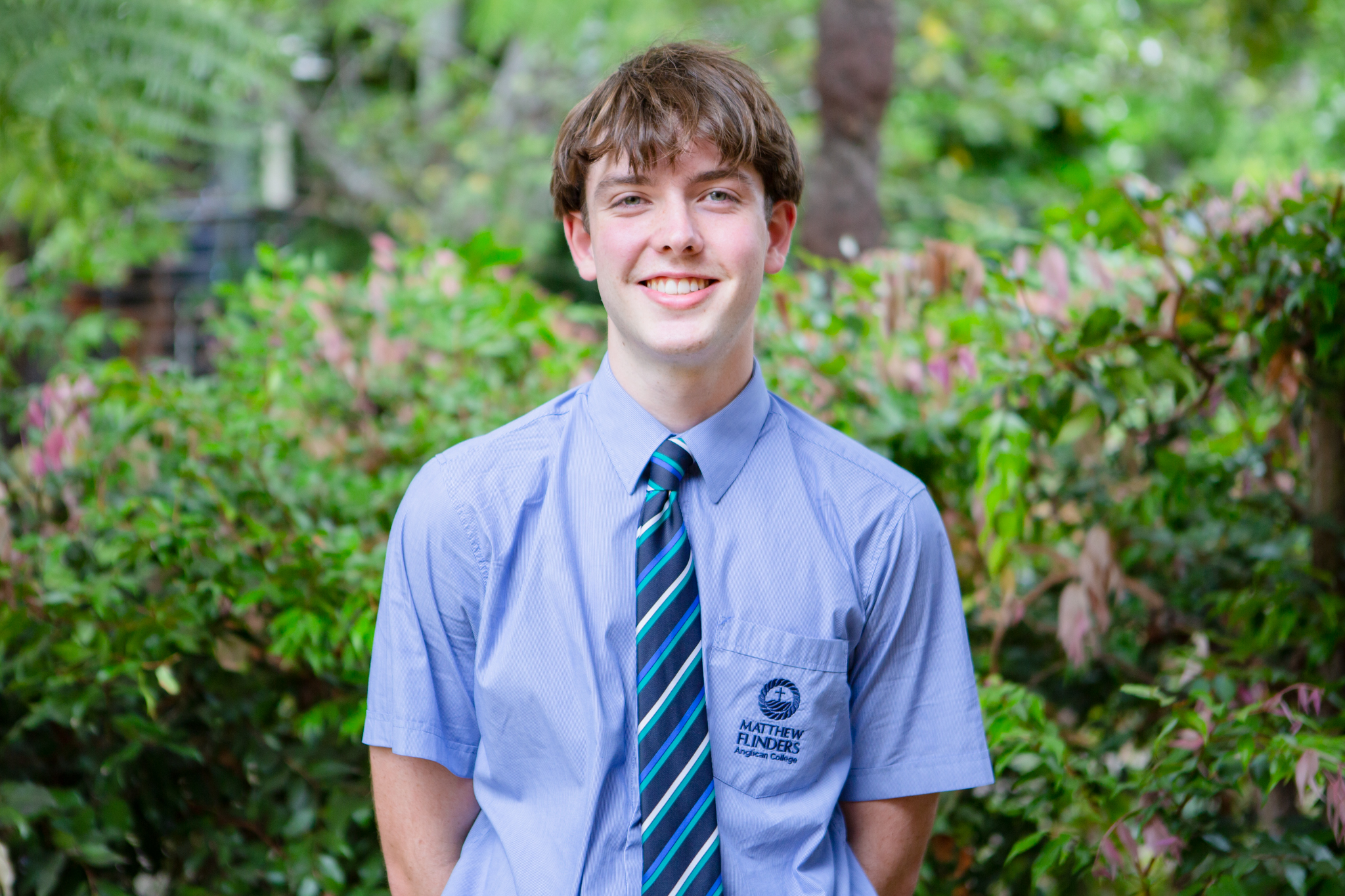Coding is a foreign language to most people, but not to Year 12 student Angus Lisle at Matthew Flinders Anglican College who was selected for a 10-day summer school at the National Computer Science School (NCSS).
The NCSS is organised by Grok Academy together with host universities, and brings together talented young people from around Australia for an intensive course of computer programming and website development at a university campus.
Flinders Secondary Teacher and Head of Learning Futures, Mr Patrick Morrow encouraged Angus to apply for the esteemed course, hosted at the University of Melbourne in January this year.
Staff at Flinders are always on the lookout for exciting internships, conferences and learning intensives beyond the classroom for students to pursue.
Flinders students have secured a range of learning opportunities in recent years, including through the inaugural Monash Design Prize, the Queensland Art Gallery/Gallery of Modern Art (QAGOMA) Creative Generation: Design learning program, and the Mayor’s Telstra Innovation Awards.
The NCSS gave Angus access to expert mentors, including senior software engineers from leading companies in the industry, such as Google, Atlassian, NAB, Macquarie Bank and Airwallex.
Mr Morrow said, “Angus is a bright student with his sights set on studying computer science and mathematics at university after graduating from Flinders, and this opportunity was right for his skill set and passion for coding.”
Angus said he jumped at the chance to apply.
“It sounded like a great opportunity and Melbourne University is one of the universities I would love to go to after school, so that added to the incentive," he said.
“The experience was amazing and has reinforced my desire to study computer science along with mathematics after I graduate from Flinders.
“And it has opened me up to the idea of being a software engineer and working in the industry, which I was not really interested in before I attended the summer school.
“Previously, I was interested in studying computer science as an academic topic and for its use in other areas of academia like math and physics.”
Angus said a highlight of the experience was working with industry mentors.
“One night I had a software engineer from Google helping me for over an hour, and I conducted a one-on-one mock technical job interview with a Commonwealth Bank mentor, which was very nerve-racking, but I learnt a lot.
“We also had a day where we visited different tech companies and banks in Melbourne and heard directly from them in their offices what working in the industry is like.”
The camp’s primary focus involved building an online chatbot and the curriculum covered topics such as natural language recognition, memory management, algorithms, writing recursion in programming.
Angus said he would encourage other students who were even “remotely interested” to apply for next year's camp, as the curriculum was designed for a wide range of skill levels and experience.
“There were some incredibly bright students who were very inspirational, helpful, and great to work in a team with.”
STEM in the Curriculum at Flinders
Angus said he developed his passion for coding, technology and mathematics through a range of Secondary School subjects at Flinders, including the Year 7 IDEAS (Innovation, Design, Engineering, Art, Science) course, the Year 8 Technologies course exploring coding for drones and virtual reality, and the Year 9 app development, analysis and design course.
IDEAS is a year-long, multidisciplinary course custom designed at Flinders, which incorporates the 21st century skills of creativity, critical thinking, communication, and collaboration.
IDEAS is also designed to challenge students’ mindsets through empathy, optimism and experimentation.
To learn more about the opportunities for students to explore STEM in the curriculum at Flinders, visit the Middle School and Senior School curriculum handbooks here.

